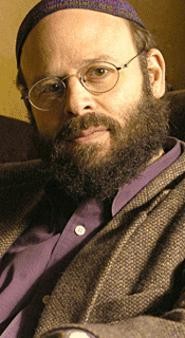
A few years ago, Rabbi Yakov Travis, an Orthodox rabbi with a Brillolike beard, was perusing the Judaism section at Borders when he came across the subsection on Kabbalah. The books were written mostly by members of the Kabbalah Center, the highly controversial place of learning where Madonna, Britney, and Demi study the ancient tradition of Jewish mysticism. After Madonna touted Kabbalah on Oprah, the religion became the newest Hollywood fad. Celebrities wore their faith on their wrists in the form of bright red strings, said to help ward off the "evil eye."
Travis called Borders and was surprised to learn that the books on Kabbalah outsold those on mainstream Judaism. Clearly, Kabbalah was becoming mainstream, whether rabbis approved of its popularization or not. Wouldn't it be better, he reasoned, for learned Jewish scholars and rabbis to lead the movement? At least they'd be able to preserve its Jewish roots.
Travis will share that thinking in his book Kabbalah: From Moses to Madonna, which is slated for publication soon. But it's already causing a schism in the usually tight-knit Orthodox rabbinical community, which, since medieval times, has restricted the study of Kabbalah to married Jewish men over 40. For an Orthodox rabbi to market Jewish secrets to the masses has some crying heresy.
Indeed, if there's one closely guarded tradition of Judaism, it's the Kabbalah. Loosely defined, Kabbalah represents the metaphysical roots of the religion, an explanation of the inner workings of the outer world. Jewish scholars believe that Kabbalistic texts hold the secrets of the universe.
"Kabbalah, in its richness and entirety, is believed to hold certain secrets that are not for the general population," says Rabbi Mayer Waxman, director of community services at the Orthodox Union in New York City.
Others go even further. Rabbi Avi Shafran, director of public affairs for Agudath Israel of America, a grassroots Orthodox organization, calls Travis the Jewish equivalent of Benedict Arnold.
"From an Orthodox standpoint, you don't go looking for converts," Shafran says. "Real Kabbalists don't see the practice as a means of making an income. [Of] those who are really experts on the Kabbalah -- and in the world, maybe there are 100 -- not one of them is teaching it as part of any institute, I guarantee you that."
Shafran accuses Travis of being a snake-oil salesman in religious garb. "Kabbalists don't tend to be people who announce themselves," he says. "A Ph.D. in Kabbalah is worth about as much as a dog-catcher's license."
But Travis has never been one to bow to tradition. The professor of Judaic studies at Siegal College in Beachwood grew up in a Reform Jewish home in Ontario, Canada. An inquisitive child, Travis constantly bugged his mother with existential questions like Why is the sky blue? The search for answers eventually drove him deep into Talmudic thinking. "But I always sensed there was something more," he says.
During the 1980s, Travis was pursuing rabbinical studies in Israel when he discovered the Kabbalistic teachings. They seemed to provide the answers he'd been looking for.
Summoning his nerve, he approached his teacher and asked: "Can I study the Kabbalah seriously?"
"No. You're not 40, you're not married," the teacher answered. "You haven't mastered the Talmud yet."
But Travis decided to move forward anyway. A few months later, he went back to his teacher. "I'm going to study the Kabbalah. I just want your approval."
Seeing his determination, the teacher relented and gave him a book to read. "Start with this," he said, handing him a book titled Palm Tree of Deborah.
From the first page, Travis was engrossed. So began his love affair with the subject, which continued at Brandeis University, where Travis received his Ph.D., and at Siegal College, where he's now a professor, considered one of the top Kabbalistic scholars in Ohio.
"I'd put him in the top seven scholars in the area," says Rabbi Yehuda Appel, of Cleveland's Aish HaTorah. "He is unquestionably knowledgeable."
Today, the inquisitive scholar finds himself asking more practical questions. In his small alcove of an office, surrounded by bookshelves bursting with texts on the Kabbalah, he worries aloud about how the Americanizing of Jewish mysticism will affect the ancient religion.
"I don't want it to become a glossy self-help manual with vaguely Jewish undertones," he says. "It will always be superficial if it's not deeply tied to the nitty-gritty of the culture."
Travis sees similarities between Kabbalah and yoga, a Hindu spiritual practice that arose thousands of years ago. Shuffling through some papers on his desk, Travis retrieves an article titled "Americanized Yoga: Is Yoga losing its spirit by becoming mainstream?" In the article, Julia Roberts is quoted as saying, "I don't want [yoga] to change my life, just my butt." Travis rolls his eyes.
Nonetheless, he does not believe that teaching Kabbalah to the masses goes against religious principles. "People who are knowledgeable and know how deeply embedded Kabbalah is in Judaism need to be at the forefront of the movement," he says. "Jews and non-Jews can benefit from it.
"If we don't lead it, who will?" he asks. "Madonna?"













